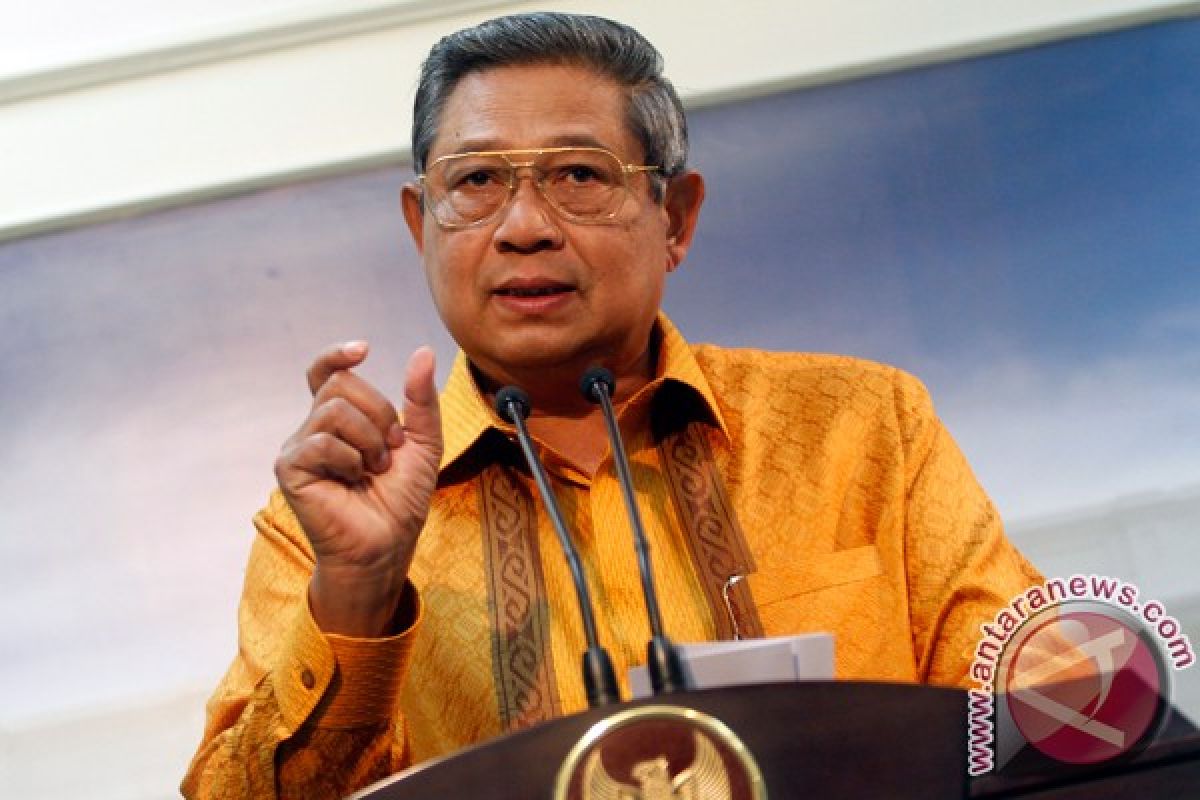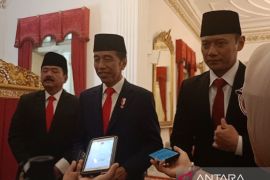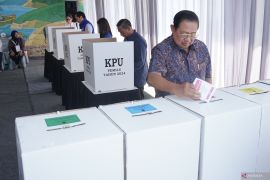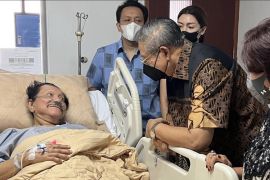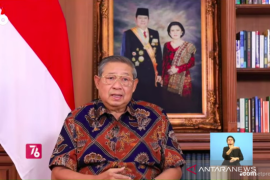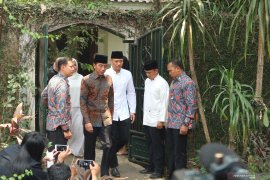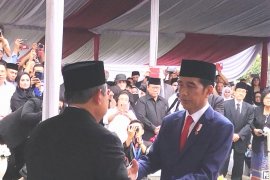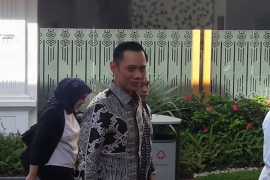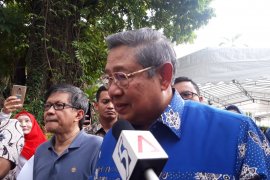"Thus we must not tolerate violence."Nusa Dua, Bali (ANTARA News) - President Susilo Bambang Yudhoyono has said that poverty eradication should be a far-reaching and continuous effort because the nature of poverty is multi-faceted and triggered by many factors.
"This is why Indonesia continues to work hard to overcome poverty. This is also why we have launched a Master Plan for Expediting Poverty Eradication (MP3K). With this master plan, we aim to reach less than 6 percent poverty level by 2025," the head of state said in his opening speech at the Regional Meeting and Stakeholder Consultation on the Post-2015 Development Agenda being held here, Thursday.
Poverty is indeed a complex and multi-dimensional issue because it is connected with so many factors, from population growth to natural disasters, according to Yudhoyono.
The global population has increased by 2 billion in less than three decades, surpassing 7 billion last year. Another 2 billion is estimated to add to this mark by 2050.
"Such a scale of population growth will impact on our ability to provide food, energy and other basic services," he said.
Natural disaster is another factor contributing to poverty. For countries that are prone to natural disasters like Indonesia, addressing poverty becomes especially challenging.
Natural disasters can backpedal development achievements. They are able to cause huge material damages, and claim a high toll on human lives. Thus, natural disasters could push millions of people back into poverty, he stated.
"I am glad that there is a common view on the importance to incorporate natural disasters in development agenda. It is important to win back the MDGs gains, from the setbacks caused by natural disasters and climate change," he noted.
He also said that poverty is worsened by intra-state and inter-state conflicts.
"Our success in resolving conflicts will create a conducive environment to implement programs to alleviate poverty. Violence breeds poverty. Thus we must not tolerate violence," he added.
He urged governments and all the stakeholders to work to create a lasting solution to the current conflicts such as civil war, ethnic conflict, and organized crime.
The president outlined Indonesia`s strategies to eradicate poverty. First, poverty eradication is a major cross-cutting issue in the government`s overall strategy for sustainable development. Thus, all development programs must be made consistent toward eradicating poverty.
Second, the poor should be given access to decent jobs and economic opportunities. The objective should be to promote inclusive growth among others through financial inclusion.
Third, it is critical to provide the poor with accessible and affordable basic needs. These include nutrition, health, education, housing, clean water and sanitation.
Fourth, it is essential to create an enabling environment in the form of economic and financial stability.
"By doing so, we make the necessary condition to pursue the development agenda," he stated.
The president added that social safety net are also necessary for the people living below the poverty line. This scheme includes the development of food security, social protection, health, education, employment, and community empowerment.
He emphasized that any effort to eradicate individual and household poverty must be supported by sound national policies and strengthened by global partnership.
The meeting was attended by among others Dr. Kuntoro Mangkusubroto, the Chairman the Indonesian National Committee on the Post-2015 Development Agenda, and Ajay Chibber, the Director of UNDP`s Regional Bureau for Asia and the Pacific.
(Uu.F001/A014)
Editor: Priyambodo RH
Copyright © ANTARA 2012
